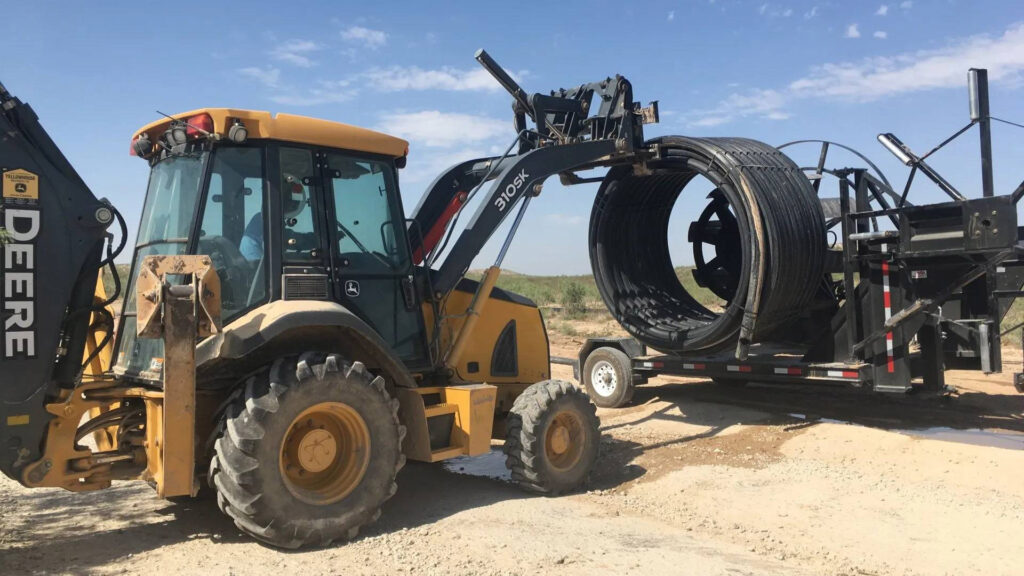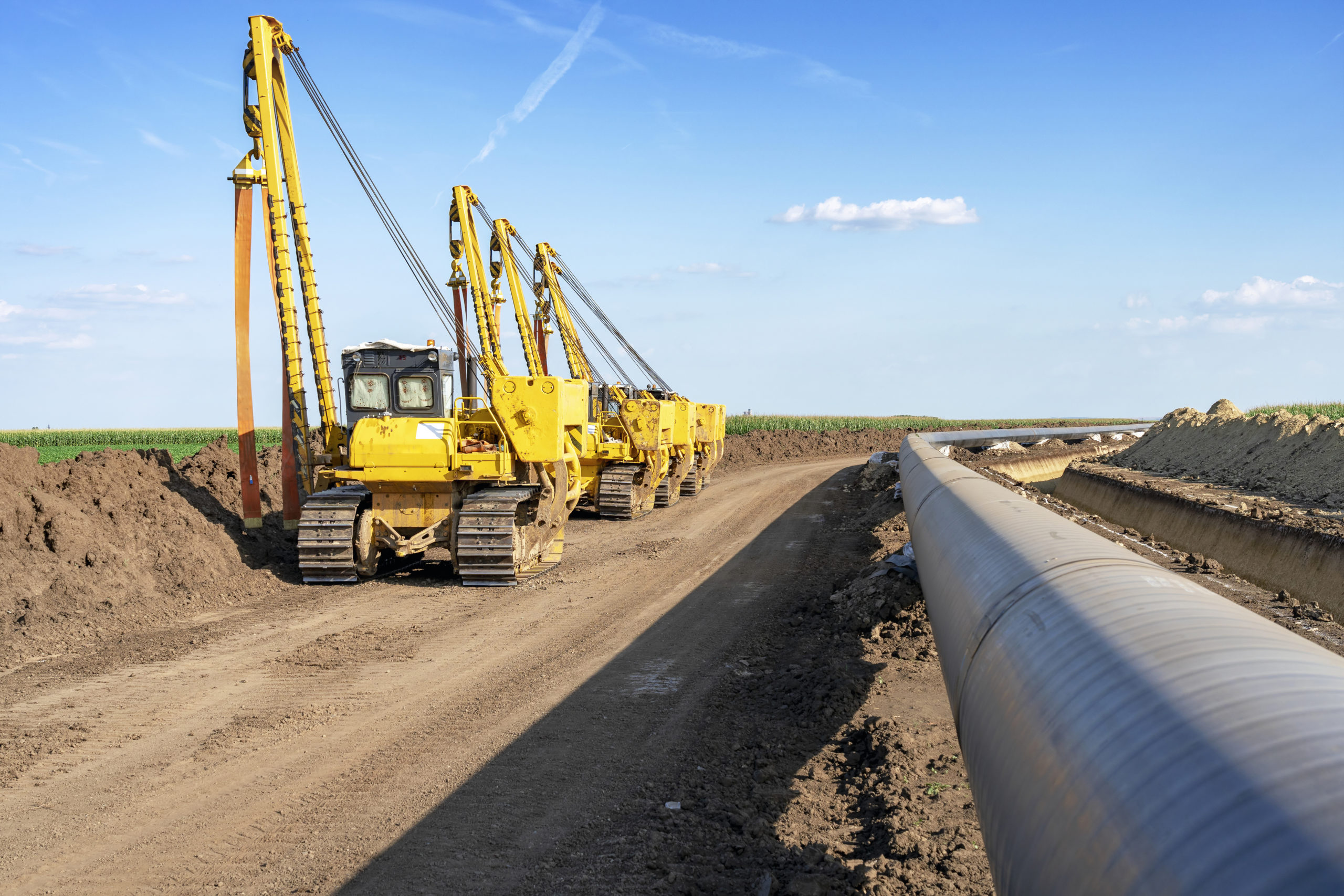How Superior Oilfield Rentals oilfield cuts downtime on-site
A Comprehensive Guide to the Different Kinds of Oil Field Equipment and Pipeline Equipment Available
The oil and gas industry relies greatly on customized devices for effective extraction and transport. Different kinds of machinery, from drilling rigs to storage tanks, play essential roles in this intricate process. Each tool offers unique features that add to general functional success. Understanding these elements is essential for anybody associated with the industry. As the industry develops, so also do the technologies that support it. What advancements are on the horizon?

Drilling Rigs: The Foundation of Oil Exploration
Drilling rigs function as the vital machinery in the domain of oil expedition, making it possible for companies to gain access to hydrocarbon reserves hidden deep below the Planet's surface area. These rigs are available in numerous types, including land rigs, offshore rigs, and mobile systems, each made to operate in particular settings. Furnished with advanced modern technology, drilling rigs can permeate geological developments with accuracy, guaranteeing efficient source extraction. The structural honesty and operational abilities of these rigs are vital, as they need to stand up to severe conditions and substantial pressures. Moreover, the choice of an exploration rig affects the overall task cost and timeline, making it a vital factor to consider for oil firms looking for to enhance their expedition initiatives and make the most of performance in their operations.
Pumps: Vital for Fluid Activity
In the oil removal process, the duty of pumps is substantial, assisting in the motion of liquids throughout various phases of manufacturing. Pumps are necessary for transporting unrefined oil, water, and various other fluids from below ground reservoirs to the surface area and afterwards with pipelines to refineries. They come in various types, consisting of centrifugal, favorable displacement, and submersible pumps, each serving specific purposes based upon the fluid attributes and operational demands. Centrifugal pumps are typically made use of for their effectiveness in high-flow applications, while positive displacement pumps stand out in managing thick fluids. The choice of pump effects general efficiency, operational safety, and upkeep prices. Appropriate choice and upkeep of pumps are essential for maximizing manufacturing and minimizing downtime in oil area operations.
Shutoffs: Managing Flow and Pressure

Shutoffs play an essential role in handling the flow and pressure of liquids within oil fields and pipes. Numerous kinds of valves offer unique applications, each designed to fulfill details features fundamental for reliable procedure - Superior Oilfield Rentals Texas. Recognizing the qualities and usages of these shutoffs is important for maximizing system efficiency and safety and security
Kinds of Valves
Crucial elements in oil area procedures, shutoffs play a vital function in regulating the circulation and pressure of fluids within pipelines and devices. Numerous sorts of shutoffs are used to meet the varied needs of oil and gas production. Usual types consist of gate shutoffs, which offer a straight-line flow and marginal pressure decrease; globe valves, recognized for their throttling abilities; and sphere shutoffs, recognized for their fast on/off control. In addition, check valves stop heartburn, while butterfly valves provide a lightweight remedy for managing flow. Each valve type is created with specific products and configurations to withstand the severe problems commonly located in oil fields, ensuring integrity and performance in operations. Understanding these types is important for effective system administration.
Valve Applications and Functions
While numerous kinds of valves serve distinctive purposes, their primary applications revolve around controlling flow and stress within oil and gas systems. Valves such as gateway, globe, and sphere valves manage fluid activity, ensuring peak efficiency and safety and security. Gateway shutoffs are generally used for on/off control, providing minimal circulation resistance. Globe valves, on the various other hand, offer exact flow regulation, making them appropriate for throttling applications. Sphere valves are preferred for their quick operation and tight sealing abilities. On top of that, pressure safety valve are essential for preventing system overpressure, safeguarding devices honesty. On the whole, the ideal selection and application of shutoffs enhance operational efficiency, guaranteeing the trusted transportation of oil and gas via pipes and handling centers.
Compressors: Enhancing Gas Transport
Compressors play an essential role in the reliable transport of gas, guaranteeing that it relocates efficiently with pipes over fars away. These tools boost the pressure of all-natural gas, allowing it to get over friction and altitude adjustments within the pipeline system. In addition, compressors facilitate the harmonizing of supply and need, accommodating fluctuations in usage and manufacturing rates. Various kinds of compressors are utilized in web the industry, including centrifugal, reciprocating, and rotating screw compressors, each offering distinctive advantages based on the operational requirements. Regular upkeep of these compressors is essential to take full advantage of performance and minimize downtime, ultimately adding to a trustworthy gas transport network. Their important function highlights the significance of compressors in the total oil and gas facilities.
Storage Tanks: Safe and Effective Liquid Administration
Reliable transportation of all-natural gas relies upon numerous support group, one of which is the proper management of tank. These tanks play a crucial role in securely containing liquids, making sure that functional efficiency is preserved while lessening environmental threats. Created from sturdy products, they are created to hold up against high stress and destructive elements. Properly sized and strategically located, storage space containers assist in the smooth circulation of gas and various other liquids, stopping bottlenecks in supply chains. Regular upkeep and tracking are crucial to find leakages or structural issues, promoting safety and security and conformity with regulatory standards. Eventually, the efficient monitoring of storage space tanks is crucial for the overall integrity and integrity of the oil and gas industry's liquid handling systems.
Pipeline Systems: Framework for Transport
Pipeline systems act as the foundation of the oil and gas market, facilitating the effective transportation of hydrocarbons over substantial ranges. These systems consist of numerous parts, including pipelines, valves, pumps, and compressors, all meticulously created to guarantee smooth circulation. The materials used in pipeline construction, commonly steel or high-density polyethylene, are selected for longevity and resistance to corrosion. Pipeline networks can cover throughout land and water, linking manufacturing websites to refineries and distribution facilities. Additionally, advanced innovation enables real-time tracking of click reference flow prices and pressure levels, boosting functional performance. The calculated placement of these pipes reduces ecological impact while making the most of source availability, consequently playing a crucial role in meeting power demands internationally.
Security Equipment: Guaranteeing Employee and Environmental Protection
The operation of pipeline systems, while crucial for power transportation, also offers substantial security challenges for employees and the atmosphere. Safety tools plays a significant duty in mitigating these threats. Individual safety devices (PPE) such as safety helmets, handwear covers, and non-slip footwear safeguards employees from physical hazards. Furthermore, gas discovery systems keep track of for leaks, making certain that damaging substances do not present a threat to discover here employees or the bordering environment. Emergency closure systems are crucial for quickly halting procedures throughout a crisis, protecting against prospective calamities. Spill containment materials, including absorbents and barriers, are essential for lessening ecological effect. Generally, investing in comprehensive safety and security tools is critical for maintaining functional integrity and securing both workers and the setting in the oil and gas market.

Frequently Asked Questions
How Do I Choose the Right Oil Field Equipment for My Job?
Picking the best oil area tools involves evaluating task specifications, budget plan restraints, and functional needs. Take into consideration elements such as tools integrity, compatibility with existing systems, and the supplier's reputation to assure peak performance and safety and security.
What Are the Upkeep Demands for Oil Field Equipment?
Maintenance demands for oil field devices consist of normal examinations, lubrication, and timely fixings. Operators ought to additionally stick to maker guidelines, screen efficiency metrics, and warranty conformity with safety and security regulations to boost durability and performance.

How Can I Ensure Conformity With Environmental Rules?
To ensure conformity with ecological policies, companies must carry out routine audits, execute best techniques, purchase training, maintain appropriate paperwork, and stay upgraded on regulation (Superior Rentals reviews). Cooperation with environmental companies can likewise enhance adherence to policies
What Is the Ordinary Life Expectancy of Pipeline Equipment?
The average life-span of pipeline tools generally varies from 20 to 50 years, relying on aspects such as material high quality, ecological conditions, and upkeep practices. Routine examinations can significantly affect durability and functional effectiveness.
How Do I Safely Move Oil Field Equipment to Remote Locations?
Transferring oil area equipment to remote locations calls for mindful planning, including course assessment, protecting authorizations, utilizing proper cars, and making sure security methods are adhered to. Appropriate training and communication among crews are crucial for successful transport.